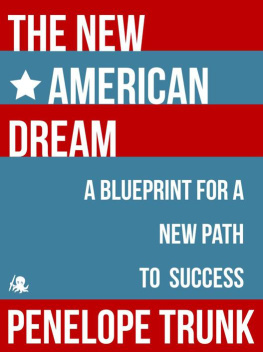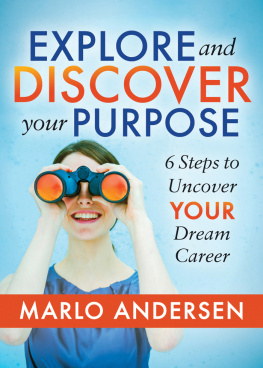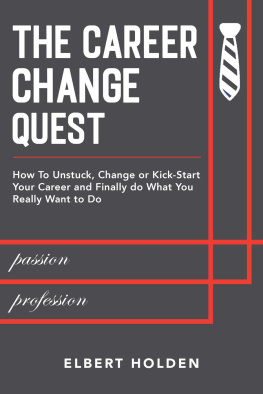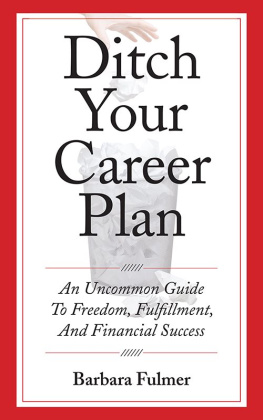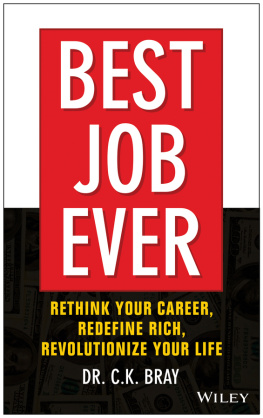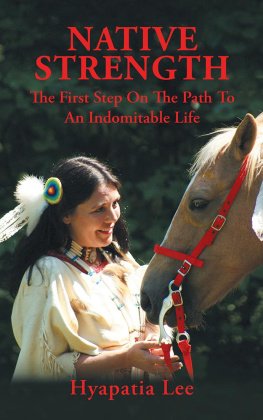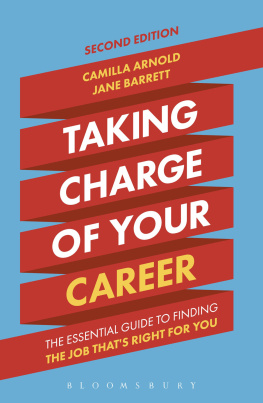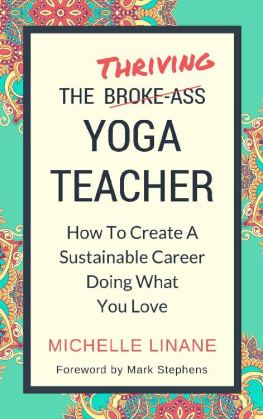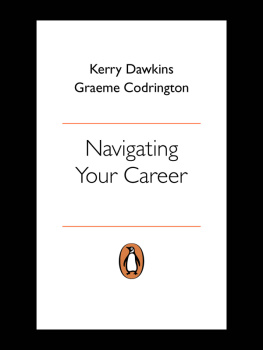I.
A career is what gives you the ability to try out what works in your life and figure out who you are and what you want. If your career stifles that,you needto change careers.
T he pursuit of happiness is vacuous. People arent happy or unhappy, b ecause b eing able to determine if we are happy would require knowing the meaning of life, or the ultimate goal, or the key to the world, or something that we are not going to find outside of blind religious fanaticism.
But if I dont want to pursue a happy life, then, what sort of life do I want?
I think I want an interested life. Not that I want to be interesting, but I want to be interested.
I want to get up each morning and have something Im excited to do. I want to have intellectual challenge and physical challenge and emotional challenge. I want personal growth, and I want goals that are difficult but attainable, through which I can track my progress.
Research about happiness reveals that we cant really make ourselves happier . For one thing, we are absolutely terrible at guessing what will make us happy. Thats why people hate their careers, why the divorce rate is so high, why shoe returns are so high. But the big thing about happiness is that 75 percent of how happy we are is genetically predetermined.
Heres what that means: We have a setpoint for happiness just like we have a setpoint for weight. Women who throw shotput dont have a second career as supermodels. They were born with a set body type. This is obvious to us. We need to get our heads around the fact that happiness set points are equally as preordained.
And just like our body type does not ruin a life, our happiness setpoint doesnt ruin a life. Because what we really want is not a certain body type or a certain happiness type. What we really want is an interesting life.
What makes life meaningful is that it ends. I remember a semester-long course of mythology I took. It was required, and I was pissed off, that I had to go (not that I planned to go to class very often) and I remember bringing a stack of magazines to read during lectures because I thought Id be so bored. But what blew me away was the idea that the gods always wanted to be like the humans, because if you have a limited lifespan then the choices you make matter a lot. If you have infinite amount of time to fix things, then nothing you do matters. You can do something different later. The choices are what makes life interesting, and the gods wanted interestingness. I realized, sitting in that class, that the best thing I could do with my life was make sure I was engaged and challenged and doing stuff that I enjoyed.
I spent the next twenty years learning how to have an interesting life. I saw my parents in jobs they didnt like. I saw people wishing they could do something with their time instead of actually doing it. I knew I wanted to do my life differently.
I started out in a timid way. I gave up a job offer at a publishing house in New York City in order to play professional beach volleyball in Los Angeles. I felt bad about the decision. On the one hand, I knew it was right for me. But on the other hand, I was used to choosing conventional paths, and I wanted approval from other people.
I realized, though, that conventional paths assume people are looking for happiness, and thats why conventional paths dont work: because searching for happiness doesnt work. Alternative paths in todays workforce focus more on interestingness than happiness. Its like we are shifting, as a workplace culture, toward interestingness, but we arent fully embracing the shift.
The New American Dream is about interestingness. Its what makes us satisfied in our life, its what makes the community feel cohesive and supportive, and interestingness is what makes our jobs work on a visceral level.
For people who are already convinced that interesting is more important than happy , this book will be a blueprint for how to feel like you belong. You have probably made unconventional decisions because you instinctively knew they were right, even though to many people you looked reckless or delusional. This book will help you understand the drive toward interestingness, and how the decisions you are making will create a cohesive, fulfilling plan for your life going forward.
And if youre dead set on being happy, this book will give you the freedom to be who you are, whatever your setpoint is, and to feel fulfilled instead of struggling to change yourself.
* * * * *
Someone once asked me to think of a moment in my childhood that was really nice. I thought of one.
Wait. You think of one, now. Quick. Just any one...
So I thought of a time: it was in my grandparents huge yard with fruit trees and flower gardens and grass for running. And it was so peaceful.
What you remember as really nice tells you something about where you belong. Whatever you thought of, learn something from that .
I used to live in New York City, where people value having a wide range of choices and opportunities over having a life that makes them feel happy. When it comes to self-reporting happiness, New Yorkers report being less happy than everyone else , but they dont care . New Yorkers love that they can get the best of everything. They want that more than they want to be happy.
Life in NYC is interesting to me, but its just plain too hard for me . When I lived in NYC with my two sons the year I had $200,000 coming in from my startup and speaking gigs, I felt like I was living at the edge of poverty. Whenever I write this, people who have lived in NYC with kids are not surprised at all, and people who have not lived in NYC think Im crazy.
Most people who live in New York City say they spend a lot of time in Central Park. I almost lived there. I thought I would die if I didnt go there each day. (Heres a test to see if you belong in New York City. I definitely dont.) I figured out that where I belong is in nature. And in quiet.
I moved to Wisconsin after doing tons of research about how to choose where to live. I knew I wanted to be able to change careers all the time, and launch startups on a shoestring budget, and feel financially stable while I was doing that. I knew I needed to live where the cost of living was low.
When I drove up to the farm where I live now for the first time , I knew I belonged here. And I saw my whole life shift toward the process of coming to grips with the fact that I am not as fast and cool and cutting edge as I wish I were. I do not belong in a city.
* * * * *
So many of the questions I get from people are questions they answer themselves, in the very email where they ask the question. They ask if its okay to want what they want, because theyre so scared to want it: a book, a blog, a job change, lots of money, less money. Its scary to want things in life . But if you dont know what you want, you cant ever know which way to move.
The trick is to admit what we want, even if we are scared we wont get it. We can only be who we are. And if we are disappointed, later on, well. I guess thats just part of being a grown up .
So, this is what I want. To live here, on this farm .
I changed my personal life without having any idea how my career would support me. But this is something I knew: my career is useless if it doesnt allow me to have the personal life I want. A career is what gives you the ability to try out what works in your life and figure out who you are and what you want. If your career stifles that, you need to change careers.
Gift this book to your friends...for free.
Become a Hyperink reader. Get a special surprise.
Like the book? Support our author and leave a comment!

